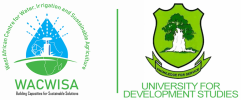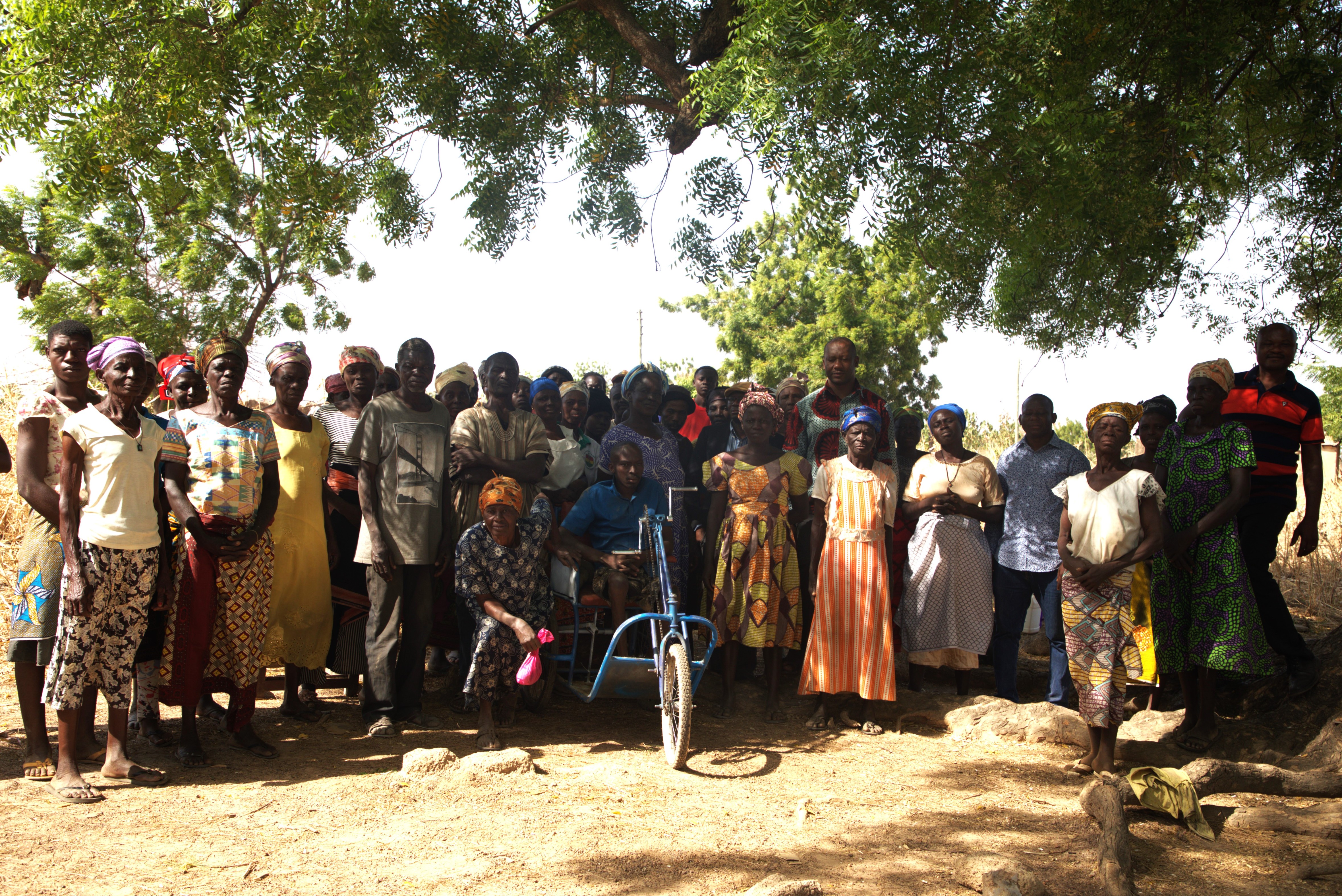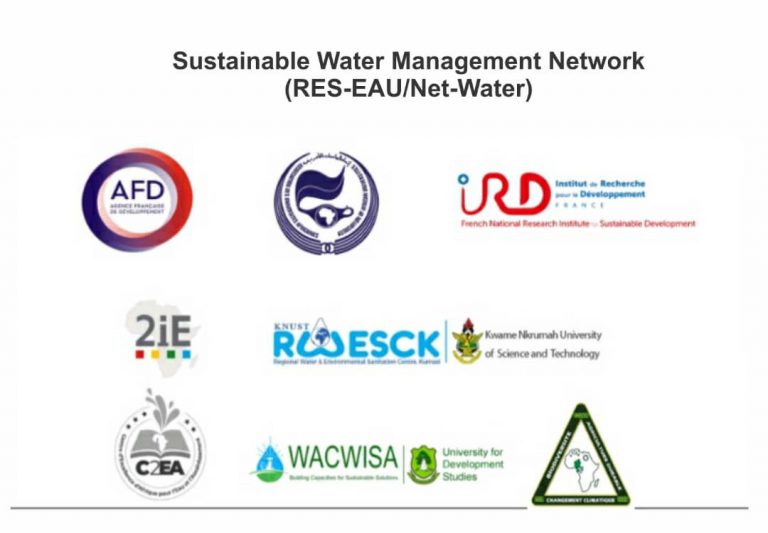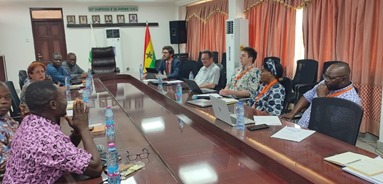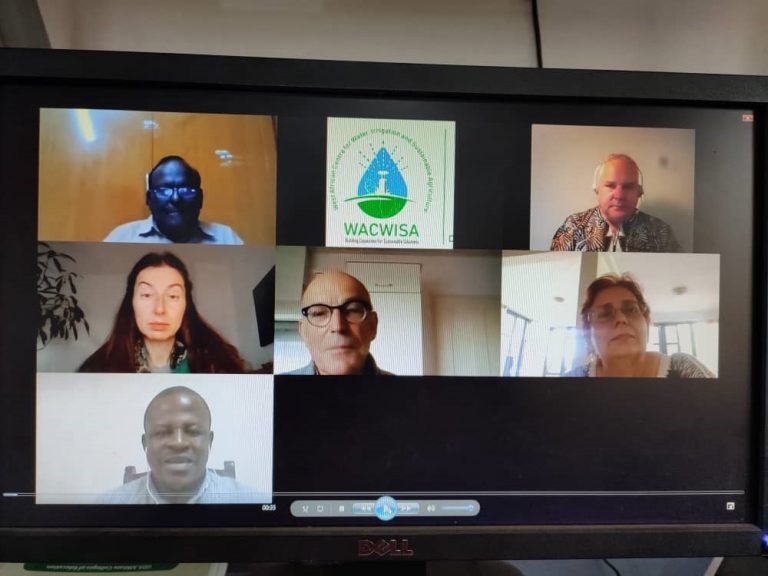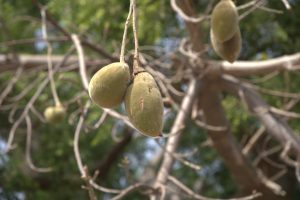 Native trees species have been associated with myriads of value chain activities and economic benefits to communities while also contributing to addressing issues of climate change. In Northern Ghana, where these climate and weather resistant native trees are found, they are also fast depleting thereby affecting the benefit derived by communities and its ecosystems. It is within this understanding and the desire to contribute towards communities resilient to climate change and restoration of native trees that the West African Centre for Water, Irrigation and Sustainable Agriculture of the University for Development Studies (WACWISA-UDS) is leading the implementation of the Climate Resilience and Ecosystems Services (CRES) Project. The Project which is being funded by the Ministry of Foreign Affairs of Denmark is implemented in partnership with other eight (8) research and academic institutions and private entities in Ghana, Burkina Faso and Denmark.
Native trees species have been associated with myriads of value chain activities and economic benefits to communities while also contributing to addressing issues of climate change. In Northern Ghana, where these climate and weather resistant native trees are found, they are also fast depleting thereby affecting the benefit derived by communities and its ecosystems. It is within this understanding and the desire to contribute towards communities resilient to climate change and restoration of native trees that the West African Centre for Water, Irrigation and Sustainable Agriculture of the University for Development Studies (WACWISA-UDS) is leading the implementation of the Climate Resilience and Ecosystems Services (CRES) Project. The Project which is being funded by the Ministry of Foreign Affairs of Denmark is implemented in partnership with other eight (8) research and academic institutions and private entities in Ghana, Burkina Faso and Denmark.
The Project Lead of CRES and Director of WACWISA-UDS, Prof. Felix K. Abagale in an interview with Emmanuel Akayeti of Ghana Broadcasting Corporation (GBC) in the Upper East Region revealed that the five (5) years Project aims to increase food and income diversity and climate change resilience of agricultural systems in West Africa. He stated that the project covers five (5) communities each, in Kumbungu District in the Northern Region, Kassena Nankana Municipality in the Upper East, and Nandom Municipality in the Upper West Regions, with the aim of improving and diversifying local income potentials in Ghana and Burkina Faso through the selection and other activities of best varieties of native tree species, value-addition to products and innovative marketing. He revealed that the six (6) indigenous tree species under consideration are the Baobab, Bombax , Dawadawa, Marula, Lanea and Jujube. These trees were said to be adaptable and resilient to the localities that were selected for the implementation and also very useful in their livelihoods and ecosystem balance.
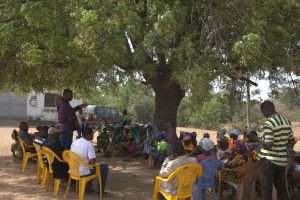
Prof. Abagale indicated that CRES works for more resilient livelihoods and adaptation to climate change, focusing on promoting multipurpose trees in agricultural systems. This will be done in collaboration with local communities making their livelihood diverse regarding food products and income sources. Sustainable development pathways are in focus at various levels, including tree planting, sustainable harvest of tree products, the establishment of eco-certified production of food products and sustainability in marketing and business models. Innovative product development and marketing support for the rural poor especially women, youth and physically challenged with few other income sources thus levelling out inequality among others.
A research team member on the CRES project, and a member of the Faculty of Natural Resources and Environment, Dr Bernard Baatuuwie, indicated that they are finding possible means of estimating the yields and population of the various native tree species on the field, using remote sensing (Drone Technology). He stated that currently there are Masters and PhD students undertaking the remote sensing, the marketing and the value chain addition, and collection of the propagation/planting aspects of the project. The CRES project working through its private partners in Ghana has established tree nurseries and raising seedlings of the species and as well targeting the planting of 20,000 of the native/indigenous tree species across the project communities.
Some of the communities visited in the Kassena Nankana Municipality were; Naaga, Kologo, Kanania, and Pindaa. Interacting with some of the community members, they expressed joy and readiness to embrace the CRES concept adding that, ongoing awareness and activities so far undertaken by WACWISA-UDS on the Project has further deepen their existing knowledge about native trees around them and their relevance to their livelihood, health, food and ecosystems benefits.
Story By: Tony Akpene Klu
